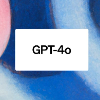The recent surge in the field of generative artificial intelligence (GenAI) has the potential to bring about transformative changes across a range of sectors, including software engineering and education. As GenAI tools, such as OpenAI's ChatGPT, are increasingly utilised in software engineering, it becomes imperative to understand the impact of these technologies on the software product. This study employs a methodological approach, comprising web scraping and data mining from LeetCode, with the objective of comparing the software quality of Python programs produced by LeetCode users with that generated by GPT-4o. In order to gain insight into these matters, this study addresses the question whether GPT-4o produces software of superior quality to that produced by humans. The findings indicate that GPT-4o does not present a considerable impediment to code quality, understandability, or runtime when generating code on a limited scale. Indeed, the generated code even exhibits significantly lower values across all three metrics in comparison to the user-written code. However, no significantly superior values were observed for the generated code in terms of memory usage in comparison to the user code, which contravened the expectations. Furthermore, it will be demonstrated that GPT-4o encountered challenges in generalising to problems that were not included in the training data set. This contribution presents a first large-scale study comparing generated code with human-written code based on LeetCode platform based on multiple measures including code quality, code understandability, time behaviour and resource utilisation. All data is publicly available for further research.
翻译:暂无翻译





